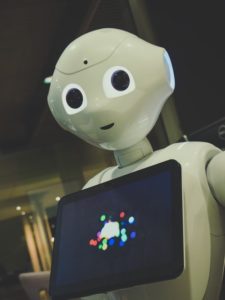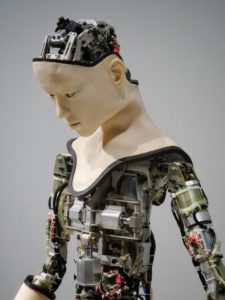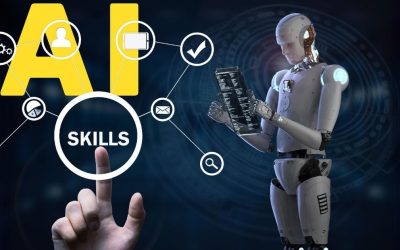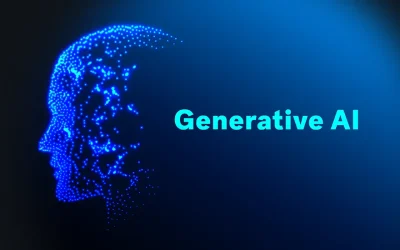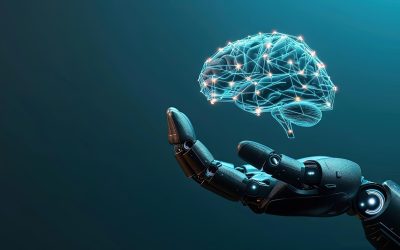With exceptional emergence and implementation of big data and analytics, both AI and machine learning have become two buzzwords in the industry right now. And they often seem to be used interchangeably. However, they shouldn’t be considered as one thing since there’re some clear differences that make AI and machine learning separate. If you’re like a majority of the marketers, and are perhaps planning to any or both of these, it becomes all the more important to have a solid understanding of the differences between Ai And Machine Learning.
Before we dig into the topic deeper, let’s have a quick look at the definitions of AI and machine learning.
What’s AI?
The term “AI” is exceptionally broad in its scope. It can be defined as the theory and development of computer systems that are capable of performing tasks that generally require human intelligence like speech recognition, decision making, visual perception, among others.
What’s machine learning?
Machine learning is a subset of AI in the computer science field that uses statistical techniques to enable the computers to learn with the help of data, without being programmed explicitly. It provides the systems with the ability to learn automatically and improve from experience.
The rise of AI
It’s needless to say that both AI and machine learning are relatively newer concepts. Though AI stretches its origin back to certain imaginative people from decades or even centuries ago, it’s only recently when it has become a reality. In the past, early computers were considered by engineers as mechanical brains and logical machines since they were capable of producing memory and arithmetic. Along with the advancements in technology, the concept of AI has been changed. Put simply, AI encompasses and mimics the decision making ability of humans to perform complicated tasks in a more human-like manner. It’s a much wider concept than machine learning. Let’s see the tasks that are performed by AI-enabled systems, in general.
- Problem-solving
- Planning
- Recognizing images and voices
- Understanding languages
- Learning
- Performing other “smart” tasks
Types of AI
There’re two key subcategories of AI. The first is applied AI while the second one is general AI.

Applied AI is focused on predefined tasks. It doesn’t hold any consciousness and unseen tasks can’t be generalized by it. It’s much more common in real world and examples of its implementation can be easily observed. Some of the applied AI systems include Siri, Netflix recommendations etc.

General AI holds all the capabilities of applied AI together with all the characteristics of human intelligence. It’s less common as it’s more complicated to create. Ideally, general AI systems should be able to perform any intellectual task successfully that can be done by humans. It’s important to note that this subcategory is what led to the rise of machine learning.
Rise of machine learning
There’re certain breakthroughs in the field of AI that contributed heavily in the development of machine learning. The first one involved identifying that it’s more effective to teach computers how to learn compared to teach them how to perform each possible task and provide them with the information needed to perform those tasks. Invention of the internet is the second major breakthrough that led to a huge potential of information storage. Now, machines can access massive amounts of data that they had never been able to access earlier because of storage limitations.
Put simply, machine learning can be considered as the practice of utilizing algorithms to parse data, obtain knowledge from it, and then make a prediction or determination about something. So, instead of hand-coding software practices with a certain set of instructions to perform a specific task, the machine becomes trained by using massive amounts of data and algorithms that enable it to learn how to perform that task thanks to data science training. Immersive data science experience is a comprehensive step for machine learning.
With machine learning coming from the AI landscape directly, several algorithmic approaches are there that are being used heavily. Some of these include Bayesian networks, reinforcement learning, decision tree learning, clustering, and inductive logic programming, among others.
Neural networks are there too
Neural networks play an essential role in the process of teaching computers human-like thinking. They allow computers to mimic human brains more closely while being more accurate, faster and less biased. Accessed data is used by neural networks to make determinations. The feedback loop for learning involved in these networks enables a machine to find out whether its decisions are right or not, and to change its approach accordingly in order to perform better the next time.
Limitations of AI
Though AI is revolutionizing the way companies do business, it comes with some real limitations too. So, it’s crucial to understand them before you go ahead with the implementation of AI. Here’re some key limitations to effective implementation of AI.
- Data: Data is crucial for AI-enabled systems to do their job. The problem is: in most companies, data is siloed typically, and rarely catalogued consistently and maintained. Often, companies refrain themselves from working with AI because they think that they mayn’t have adequate amount of required data. They also often overlook the fact that it’s about having actionable data and not general data. Data standards and regulations are two other data-related limitations.
- Inability to think for itself: AI-enabled systems can only do what they’re programmed to do. It’s not capable of making split-second judgments like a human being. So, precise management and control of these systems are extremely crucial.
- Lack of real-world knowledge: AI-enabled machines usually don’t understand what they don’t understand. Though they can interpret huge volumes of information, it can’t be ensured that they will understand everything about them.
- Cost and maintenance: AI-enabled systems come at a significant price and their ongoing maintenance is costly too. The software needs to be updated regularly to adapt to the continuously changing business landscape.
Despite all these limitations, AI is surely going to be more and more efficient over time. However, you should consider these aspects in order to stay away from unrealistic expectations.
Limitations of machine learning
Machine learning also comes with its own limitations. Machine learning models are much more complex in nature. Though these models are capable of making predictions and recommendations by identifying patterns in a given dataset at a scale beyond the limits of humans, it’s impossible to explain how and/or why the model has made those predictions and recommendations. This lack of transparency is a key issue in some industries.
Differences between AI and machine learning in a nutshell
Here’s a brief overview of what we discussed earlier in this post in order to determine the key differences between AI and machine learning.
- Goal of AI is to increase chances of success instead of accuracy while machine learning aims at increased accuracy rather than focusing on success
- Natural intelligence is stimulated in AI to solve complex problems while machine learning models learn from given data on specific tasks to optimize their performance
- Unlike machine learning that allows systems to learn from data, AI encompasses decision making
- AI involves developing systems that can mimic humans while machine learning involves developing self learning algorithms
- Unlike machine learning that leads to knowledge, AI focuses on intelligence
AI or machine learning – Which one should you go for?
Both AI and machine learning have a lot to offer with their promises of giving creative insights as well as automating mundane tasks. Industries in every field – from healthcare to banking to manufacturing and more – are gearing up to reap the benefits if they aren’t already.
While AI has been around for a prolonged time and can sometime seem like an “old hat”, machine learning can offer businesses something new. Today, we’re certainly closer than ever and we’re moving toward developing human-like AI at an increasing speed. It’s important to understand that much of the enviable progress happening in the recent years is heavily based on the fundamental changes in the way we envisage AI working that has been brought about by machine learning.
Both these systems already offer some great applications and we can expect to see more to come from them. However, machine learning has gotten more publicity lately with a huge number of companies focusing on this source of solutions. AI can also prove to be extremely useful for an array of simpler applications that don’t need ongoing learning.
Despite all the differences, the huge majority of AI solutions are machine learning solutions. You can strategically use both AI and machine learning to maximize your benefit. In the future, it might be possible for machine learning to lead us to something more predictable and more sophisticated. You can consider it as a distinct method of attaining the same goal as that of AI.
There’re various elements that have helped in increasing the wide adoption of and excitement around artificial intelligence. Among them, advanced artificial intelligence that is being used by companies is a variant of machine learning to a good extent.
As you can see from the above, there’re differences between AI and machine learning with something in common as well. When it comes to implementation, determining which one of these is best for your business depends on your field of business and your specific requirements.



